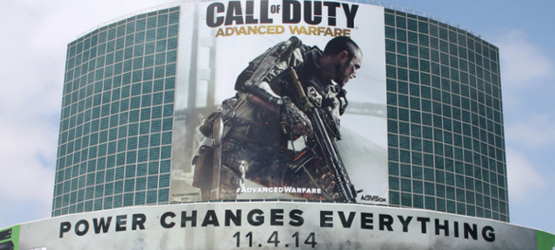Games journalism has a bad reputation, and for good reason, but it’s not actually all its fault. There is an issue with it that it can’t fix, at least not in the foreseeable future. An issue of control.
It’s a product-based form of journalism, and the problem with all product based journalism is obvious. We are reliant on those products – and the producers of those products – for the news and focus. It’s an unavoidable relationship.
When writing about a new electronic device, a film or a game, journalists obviously want to cover it when it is relevant, which is mostly leading up to and around its release. Then, after it does release, there is a brief window of relevance, which diminishes over time. There are some exceptions, such as with MMOs, where journalists have a reason to cover the product, but still usually to a lesser and lesser extent. There is little point in extensively covering Killzone 2 now, for example, as everyone who wanted to play the game has had ample time to do so.
Before a game’s release, when most of the coverage does take place, games journalists face a problem. They have no control over the pace of that coverage, no control over their own content. As the title is unavailable to them, they must rely on publishers and their PR team to tell them when to cover a game – not through under-the-table ad deals, or even collective discussion forums, but through the simple fact that the PR people have control over when press releases, trailers, screenshots and interview opportunities become available.
Stuck in a Hole
During game development, PR companies come up with their strategies for the perfect amount of coverage at the perfect time to maximize hype at release. Too much hype and coverage too early, and people get bored of a game before it’s even out, leave it too late and there’s not enough hype or pre-orders guaranteeing sales. With this plan formulated, the PR teams release their content at the pace they desire, something that can differ from game to game. Rockstar, for example, usually prefers to be relatively tight lipped about the Grand Theft Auto series, releasing only a few screens or trailers leading up to release, while Saints Row‘s team pumps out far more content for the media to cover.
Journalists then, as their job requires and their audience demands, cover the trailer or the press release. On the one hand, it makes sense: they’re covering something that their audience wants to know about, with much of the legwork already done for them. But, on the other hand, most of their work is that of a middleman, essentially advertising a game for free. They simply don’t get to choose when to cover a game, and act more as Jimmy Fallon or a Graham Norton-like character who is wheeled out to promote product after product.
The reaction by a small number of outlets has been to simply not cover press releases or news. While that may work for them, that’s only because the rest of the industry is covering it. If no one covered the news, it would be a disservice to readers who do want to see trailers and find out game details even if the content is originally from a PR team. Worse still, if the games media stopped covering it, readers would be forced to go directly to the source, and there wouldn’t even be the filter of the games media to cut out some of the crap or point out when publishers are blatantly lying or using misleading statistics (for example, when a release says registered users instead of active, or shipped sales instead of sold).
So we’re trapped, forced to cover content at PR people’s desires, reviewing games to their schedule and interviewing developers when they allow us, rarely ever able to ask the all the questions we want, or get the answers the developers want to even say.
Trying to Dig Ourselves Out
We make it worse, of course. In this “new digital era,” hyperbole is king. Post-Buzzfeed and Huffington Post, everything is now “breathtaking,” “eye-popping,” and “life changing.” Everyone in the media is competing with everyone else for your clicks, so they have to hype up every single story to get you to click on it. This means press outlets are literally competing to see who can best advertise a game, even if that’s not their intention.
It should be noted that the media does serve some useful purpose. Increasingly, it can provide necessary coverage to indie games that otherwise would be seen by no one; it can ask publishers and developers important (albeit censored) questions; it can sometimes do investigative reporting and uncover inequalities or problems in the industry; and it can review titles and warn people if they’re not worth the money; and more.
But outside of the usual PR cycle of news, the games media’s other main form of content is primarily commentary. Opinion pieces can, hypothetically, draw attention to issues (DRM, DLC or whatever) and so help bring about positive change. More often than not, however, the content ends up being clickbait or whiny nit-picking that makes the industry seem bitter and unpleasant. With every single issue and non-issue so overly debated, exaggerated and lampooned, often real problems are buried among all the white noise of a 1,000 games journalists all moaning in mock outrage on N4G.
But Just Ending Up in a Deeper Hole
Perhaps it is because they know they have no control over their news, because they know that there is nothing unique or even special about their coverage, that commentary has become so extreme, so unnecessarily over the top in an effort to stand out. Again and again, after reading publication after publication, I am left unsettled, unsure if the author ever truly cared about the topic they covered, or if they just wanted to fill a page or, worse, just wanted to appear like they cared to a specific audience.
This is a real problem, a dangerous road that product journalism has been pushed down. And the biggest issue is it’s inevitable. Corruption can be rooted out, bad ad deals can be stopped, but product journalists will always be reliant on the producers of the content they’re covering.
That is inescapable.
At best, we can cut down on the hyperbole, we can cut down on the commentary that isn’t genuine or important, and we can focus on providing better content outside and on top of the normal news cycle. People should still call out publications for their wrongs, and we can potentially create a relatively better industry.
But beyond that? I’m unsure. If you came here hoping for a solution, I’m sorry, I’m at a loss – if you have an idea, feel free to share in the comments below. I love games, I love journalism, but it’s harder and harder to argue that those two passions truly overlap for most in the industry.
The views expressed in the post are those of the author’s, and doesn’t reflect the entirety of PlayStation LifeStyle and/or its staff.










